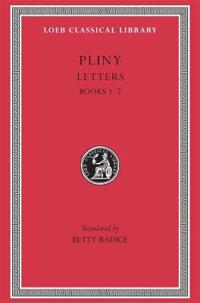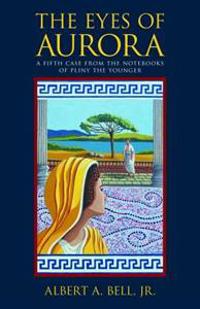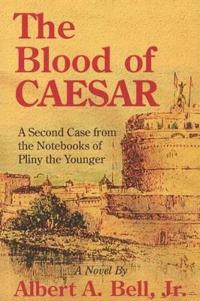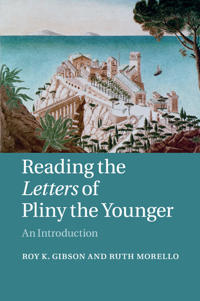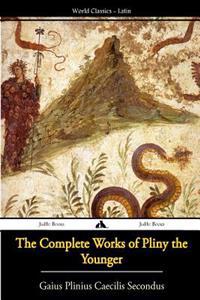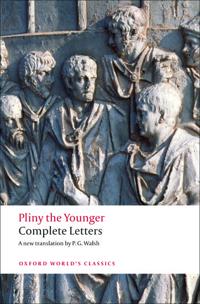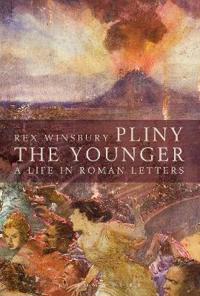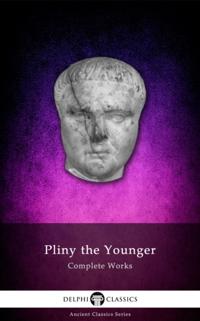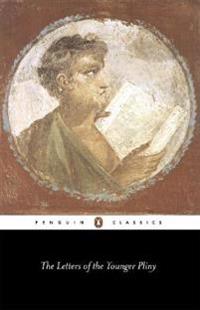Pliny The Younger: Epistles Book Ii (Pocket)
avPliny The Younger
ISBN: 9780521187275 - UTGIVEN: 2013-08-31The first modern literary commentary on Pliny the Younger's Epistles II, essential reading for students and scholars of Roman literature.[...]
Pliny The Younger: Epistles Book Ii (Inbunden)
avPliny The Younger
ISBN: 9781107006898 - UTGIVEN: 2013-08-31The first modern literary commentary on Pliny the Younger's Epistles II, essential reading for students and scholars of Roman literature.[...]
Pliny Letters and Panegyricus (Inbunden)
avthe Younger Pliny
ISBN: 9780674990616 - UTGIVEN: 1969-06The Younger Pliny was born in 61 or 62 CE, the son of Lucius Caecilius of Comum (Como) and the Elder Pliny's sister. He was educated at home and then in Rome under Quintilian. He was at Misenum at the time of the eruption of Vesuvius in 79 (described in two famous letters) when the Elder Pliny died.[...]
The Eyes of Aurora: A Fifth Case from the Notebooks of Pliny the Younger (Häftad)
avAlbert A. Bell Jr, Albert A. Bell
ISBN: 9781564745491 - UTGIVEN: 2014-09Pliny s servant Aurora, who is also the forbidden love of his life, has played Good Samaritan to a woman who claims to be searching for her missing husband. Thinking he can help the woman, Pliny steps in, assisted, as usual, by his friend Tacitus. But the situation turns into a web of deception and [...]
The Blood of Caesar: A Second Case from the Notebooks of Pliny the Younger (Häftad)
avAlbert A., Jr. Bell
ISBN: 9781932158823 - UTGIVEN: 200806Pliny the Younger and Tacitus have another mystery to solve - actually layers of mysteries. During dinner at the emperor Domitian's palace, a workman is discovered dead in the archives. Why is this humble man's death important to the ruler of Rome? Domitian assigns Pliny to uncover references to an [...]
Reading the Letters of Pliny the Younger
ISBN: 9780521603799 - UTGIVEN: 2016-01This is the first general introduction to Pliny's Letters published in any language, combining close readings with broader context and adopting a fresh and innovative approach to reading the letters as an artistically structured collection. Chapter 1 traces Pliny's autobiographical narrative through[...]
All Roads Lead to Murder: A Case from the Notebooks of Pliny the Younger (häftad)
ISBN: 9780996182850 - UTGIVEN: 2016-04The Complete Works of Pliny the Younger (häftad)
ISBN: 9781909669987 - UTGIVEN: 2013-12Gaius Plinius Caecilius Secundus (61 - ca. 112), better known as Pliny the Younger, was a lawyer, author, and magistrate of Ancient Rome. He wrote hundreds of letters, many of which still survive, that are regarded as a historical source for the time period. Some are addressed to reigning emperors o[...]
Complete Letters (Häftad)
avPliny the Younger
ISBN: 9780199538942 - UTGIVEN: 200902'Gaius Pliny sends greetings to his friend Septicius Clarus...' In these letters to his friends and relations, Pliny provides a fascinating insight into Roman life in the period 97 to 112 AD. Part autobiography, part social history, they document the career and interests of a senator and leading im[...]
Pliny the Younger: A Life in Roman Letters (Inbunden)
avRex Winsbury
ISBN: 9781472514585 - UTGIVEN: 2013-11-07Pliny the Younger
ISBN: 9781474237123 - UTGIVEN: 2015-05Pliny the Younger who lived c. 100 AD, left a large collection of letters, thanks to which we know him better than almost any other Roman. He is best known as witness to the eruption of Vesuvius in 79 that destroyed Pompeii, and for his dealings with the early Christians when a regional governor. He[...]
Complete Works of Pliny the Younger (Delphi Classics)
ISBN: 9781910630440 - UTGIVEN: 2016-06The letters of Pliny the Younger have preserved for posterity a precious portrait of First Century life, detailing the daily routines of the Roman times and the men and women that inhabited the author's world. The famous account of the eruption of Vesuvius and Emperor Trajan's advice concerning the [...]
Letters of the Younger Pliny (Pocket)
avBetty (TRN) Radice
ISBN: 9780140441277 - UTGIVEN: 1976-04A prominent lawyer and administrator, Pliny (c. AD 61-113) was also a prolific letter-writer, who numbered among his correspondents such eminent figures as Tacitus, Suetonius and the Emperor Trajan, as well as a wide circle of friends and family. His lively and very personal letters address an aston[...]


